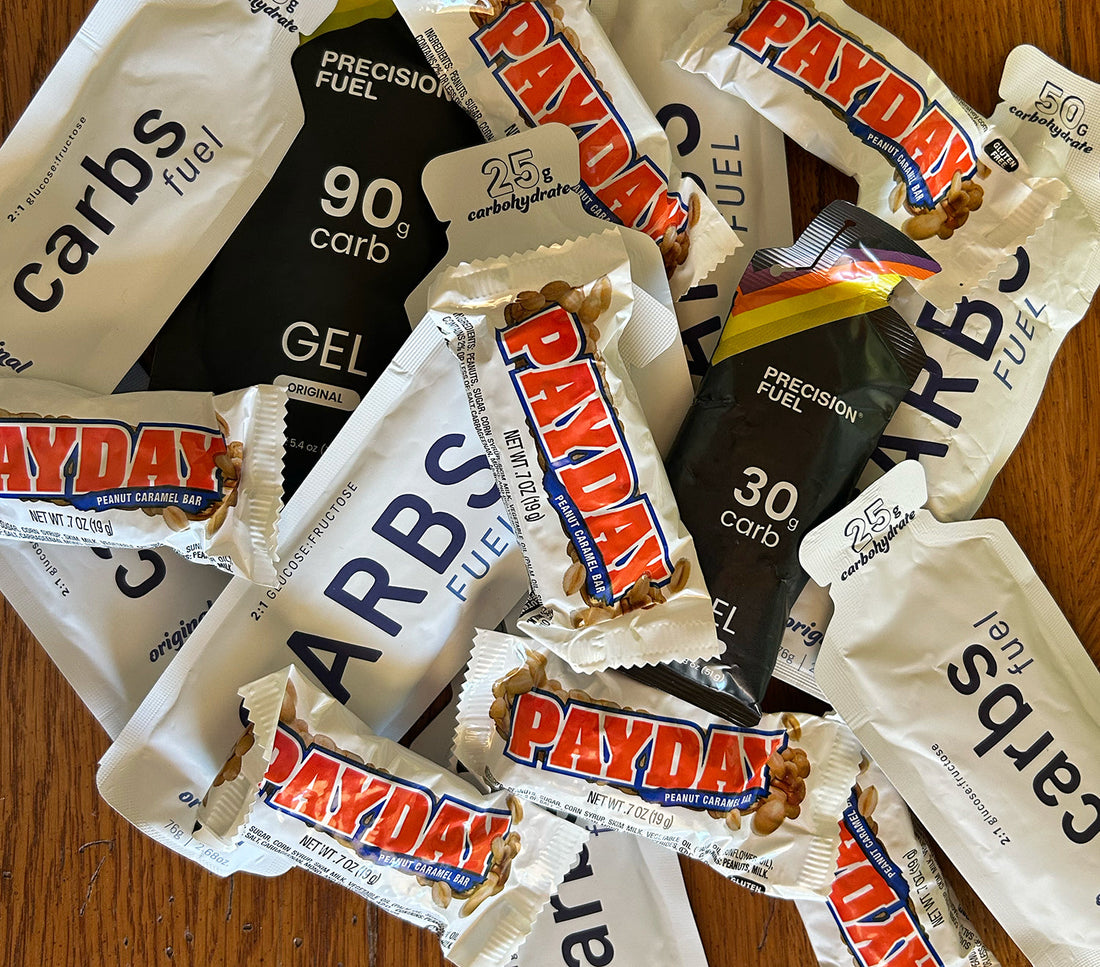
Calories vs. Carbs: The Ultimate Fuel Guide for Trail Runners
Share
Calories and carbs. You see them on every food label, you hear them in every conversation about nutrition, but what's the difference? And as a trail runner, why should you care?
When you’re out on the trail, your body is a high-performance engine. And just like any engine, it needs the right fuel to perform at its best. Let's break down the difference between calories and carbs and how to use them to your advantage.
The Big Picture: What Are Calories?
Think of calories as the total energy your body gets from food. A calorie is simply a unit of energy. Whether you're eating a protein bar, a handful of nuts, or a piece of fruit, your body is getting energy from it.
Every type of food—carbs, fats, and proteins—contains calories. When you're running, your body burns these calories for fuel. It's a simple equation: you need to consume enough calories to match the energy you're expending, or you won't have the power to keep going.
The Specific Fuel: What Are Carbohydrates?
While calories are the total energy, carbs are your body’s preferred and fastest-acting fuel source.
Think of your body's energy storage like a two-car garage. One side is a big SUV full of fat, and the other side is a small, quick sports car full of carbohydrates.
Your body can burn fat for fuel, and it's great for low-intensity, long-duration activities. But when you need to run, climb a steep hill, or maintain a fast pace, your body wants that quick sports car—the carbs.
Your body stores carbohydrates as glycogen in your muscles and liver. During a run, especially a high-intensity or long run, your body taps into these glycogen stores first.
Why Both Matter for a Trail Runner
-
Calories give you the total energy to survive and thrive. If your total calorie intake is too low, your body won't have enough fuel to recover and build muscle, no matter how many carbs you eat.
-
Carbohydrates give you the immediate power to run. If you're heading out for a long run or a race, you need to "carb-load" to top off your glycogen stores. And during the run, you need to replenish those stores with quick-acting carbs like gels, chews, or sports drinks.
My Takeaway:
I learned this the hard way on some of my first long runs. I started out with the simple idea of taking in 100 calories an hour, which for me meant a combination of a snack-size PayDay bar and a mini Clif Bar. I would head out on the trail and wonder why I was feeling sluggish and hitting the wall so early.
Things improved when I bumped my intake up to 200 calories an hour—two snack-size PayDays and a Clif Bar. The energy was better, but after a while, that combination of dense bars was hard to choke down hour after hour. My stomach was unhappy, and eating became a chore.
Early this year, I started experimenting with a carb-based fueling strategy, and it was a complete game-changer. I transitioned to taking in 75 grams of carbohydrates an hour, often mixing in drinks like Skratch to help with hydration. The difference was night and day. It quells my hunger, provides a steady supply of energy, and gives me the boost I need to keep going. I no longer dread fueling on the trail.
My journey taught me that it’s not just about a calorie number—it’s about the right kind of fuel for the specific demands of trail running.
Practical Tips for Your Next Run
-
Before You Run (Fueling Up): Focus on a meal high in complex carbohydrates (like oatmeal or a banana) 1-2 hours before your run. This tops off your glycogen stores.
-
During the Run (Replenishing): For runs longer than an hour, aim to take in 30-60 grams of simple carbohydrates per hour. This is where products like gels, chews, or even a handful of dried fruit come in.
-
After the Run (Recovery): Within 30-60 minutes of finishing, eat a combination of carbs and protein. The carbs will help replenish your muscle glycogen, and the protein will help repair muscle.
In the end, you need both calories and carbs to be a successful trail runner. Focus on a balanced diet for overall health and use strategic carbohydrate intake to power your best performances on the trail.
